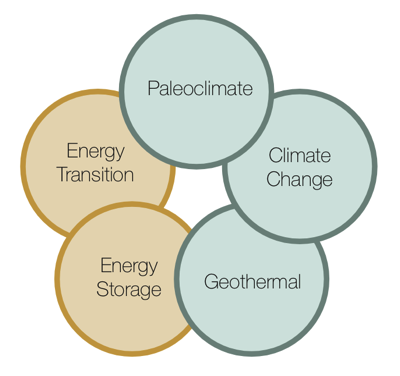Thanks to the long and contrasted trajectory of the research group (which started in 1994), there are several research lines that have marked our research that have been carried out up to the present day.
These lines have remained active year after year (and will continue in the future) and have been improved and updated thanks to the active research carried out by the different researchers of the group, as well as advances in related fields (such as computer science) that have allowed to reach unimaginable levels in previous stages. These lines have a wide range of application in different disciplines, and many of them have a basic and general character that makes them essential for other studies and disciplines.
Among these, we highlight:
3D reconstruction of geological structures and geobodies
4D geological reconstruction
Numerical modelling of geological processes
Structural geology and tectonosedimentary relationships
Internal deformation and fracture analysis
Salt tectonics
Reservoir geology
Magnetostratigraphy and biostratigraphy
Lithospheric geophysics and tectonics
New times, new realities and the new needs have made that, at the end of the 2010s and the beginning of the 2020s, all the experience of the group was used to modify and reorient the main research lines to be able to respond to the future challenges of the society. They have revolved around three main axes: energy transition, climate change and new energies.
Thus, as well as the generic and basic lines of research of the group, new lines of research have been added, such as those indicated below, which will mark the research of the group in coming years:
Paleoclimate
Climate Change
Geothermal
Energy Storage
Energy Trasition
Research Lines

